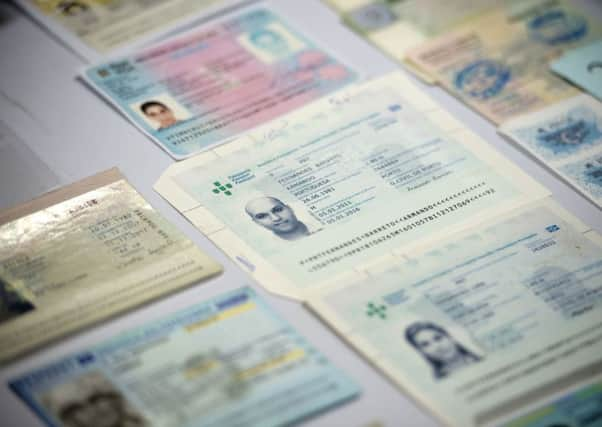Alison Sim: Spirit of modern slavery law is as vital as letter


Modern slavery and human trafficking have been all over the news in recent years, highlighting the plight of vulnerable people caught up in criminal organisations run by ruthless gangmasters.
Horrifying stories of the human tragedy of this exploitation stick in all of our minds – Burmese and Cambodian fisherman being forced to work as slaves in Thailand and the abuse of migrant workers building infrastructure for the 2022 World Cup in Qatar to name but two. But the issue also occurs a lot closer to home.
Advertisement
Hide AdAdvertisement
Hide AdThe Modern Slavery Act came into force in October last year, compelling certain commercial organisations to provide a statement outlining the steps they’re taking to ensure modern slavery is not taking place in any part of the organisation or supply chain.
What do we mean by modern slavery? It covers: sexual exploitation; labour exploitation; domestic servitude; criminal exploitation; child labour; forced labour; arranging or facilitating the travel of another person with a view to that person being exploited also constitutes human trafficking.
If you are a commercial organisation (including large charities and not-for-profit organisations) which supplies goods or services in the UK, and which has a global annual turnover of £36 million or more, then you’ll need to comply with the Act. And if the Act and its requirements are news to you, you’re not alone. In January 2016, the Chartered Institute of Procurement and Supply (CIPS) reported that one in five procurement managers were unaware of the new requirements, and more than a quarter weren’t sure of what they needed to do.
If your organisation meets the requirements mentioned previously you’ll now need to publish an annual slavery and human trafficking statement on your website, demonstrating what steps you’ve taken to prevent modern slavery occurring in your supply chain. If your financial year end is after March 2016, you’ll have to publish it for the financial year 2015-16, preferably within six months of your year end. If your financial year end is before March 2016, you’ll be exempted for that financial year, but will still be encouraged to publish a statement.
Not sure what to say in your statement? Well, if you haven’t done anything to ensure modern slavery isn’t taking place in your organisation, you could simply make a statement to that effect. But while that might allow you to comply with the letter of the law, it doesn’t chime with the spirit of it. Are you prepared for the adverse publicity that might come with being identified as an organisation which doesn’t pay heed to the global tragedy of human trafficking and modern slavery? And those which fail to publish a statement can be forced to comply or risk an unlimited fine.
Consumers increasingly expect the companies with which they choose to do business to have a genuine social conscience; procurement professionals also want to see evidence that the businesses with which they contract pay heed to their responsibilities as members of society.
Realistically, it’s not possible to expect a business with a long, complex and global supply chain to have oversight of every moving part, but while eradication of modern slavery is the vision outlined in the legislation, it is the actions of businesses which will count.
• Alison Sim is a partner with HBJ Gateley